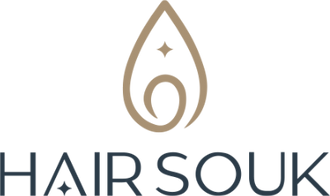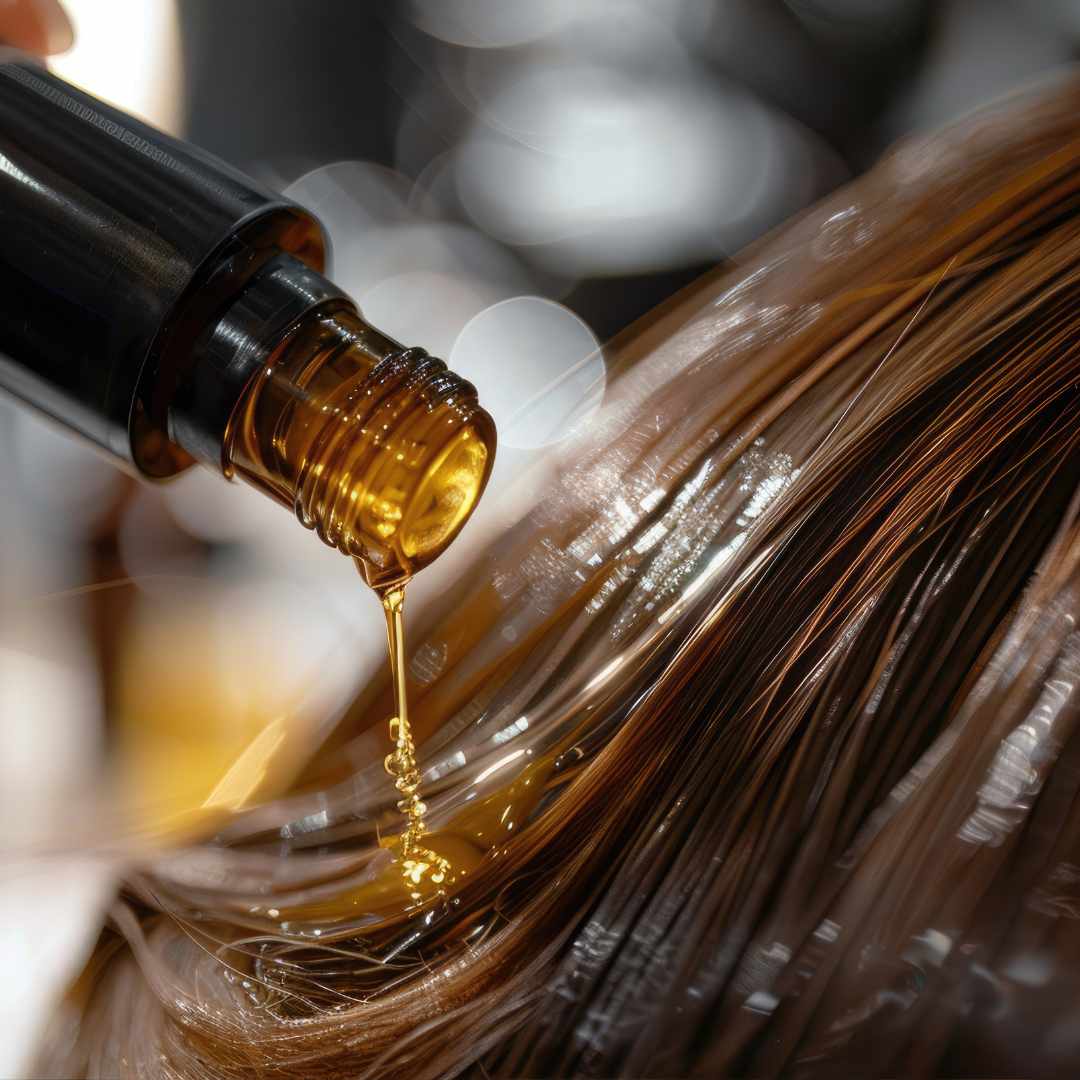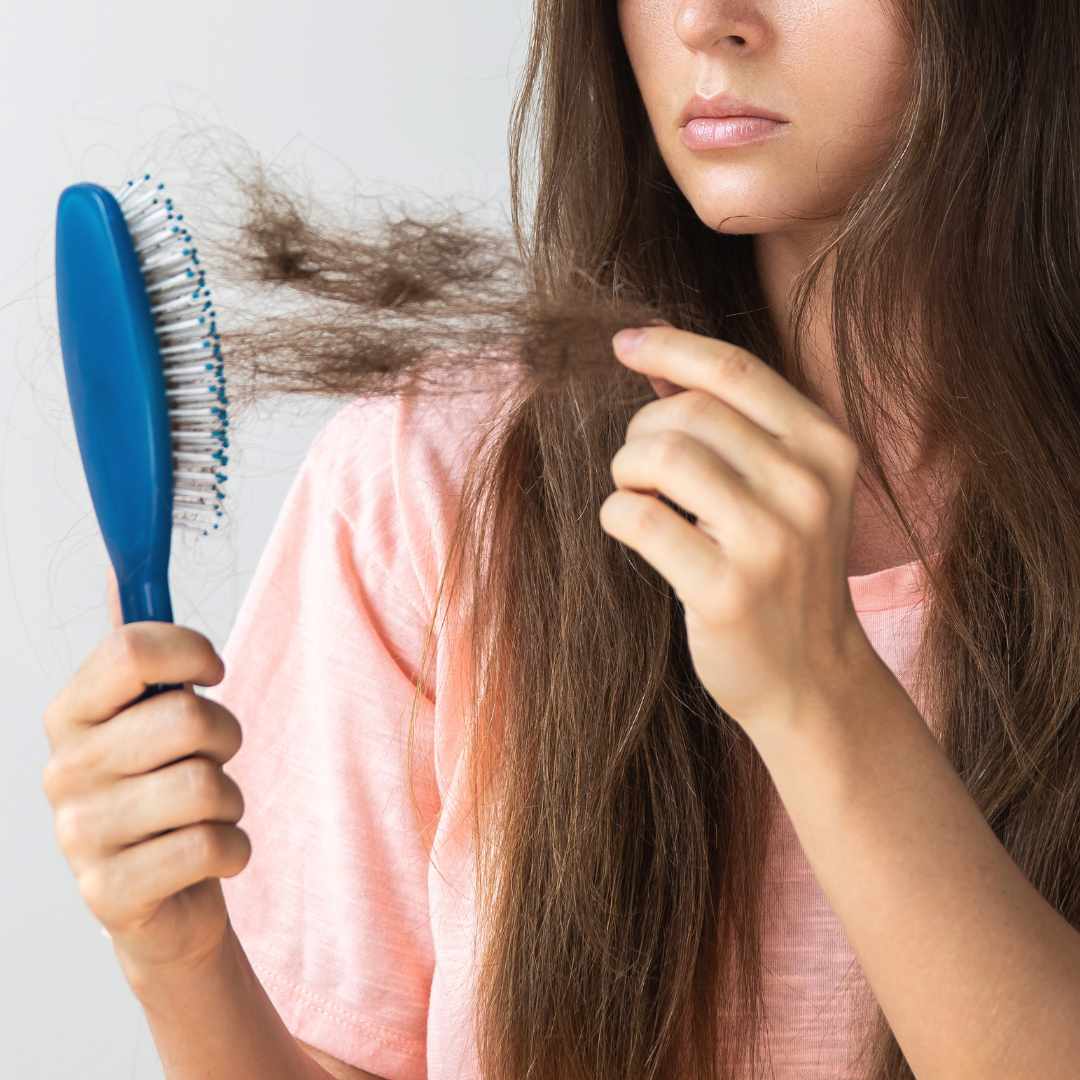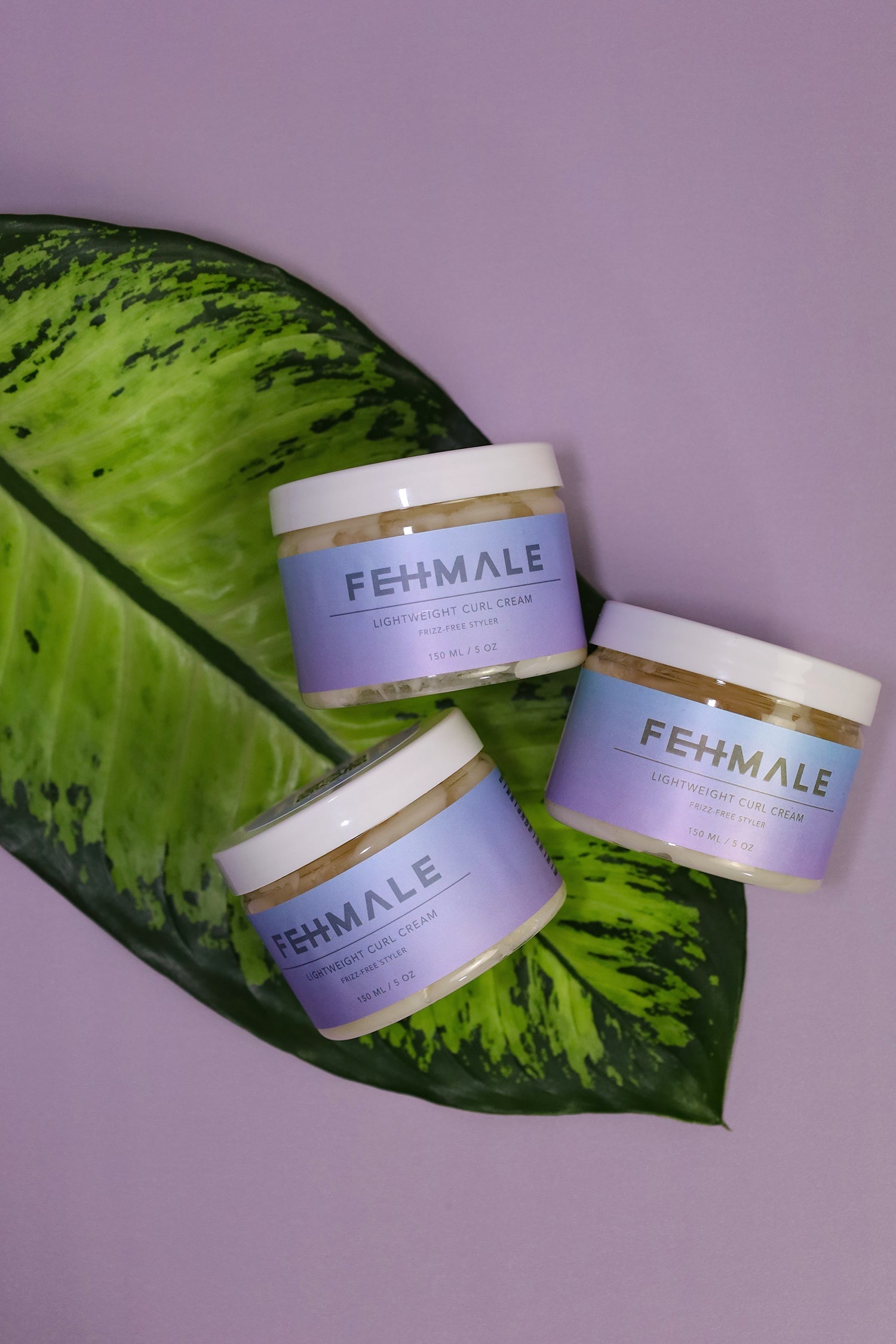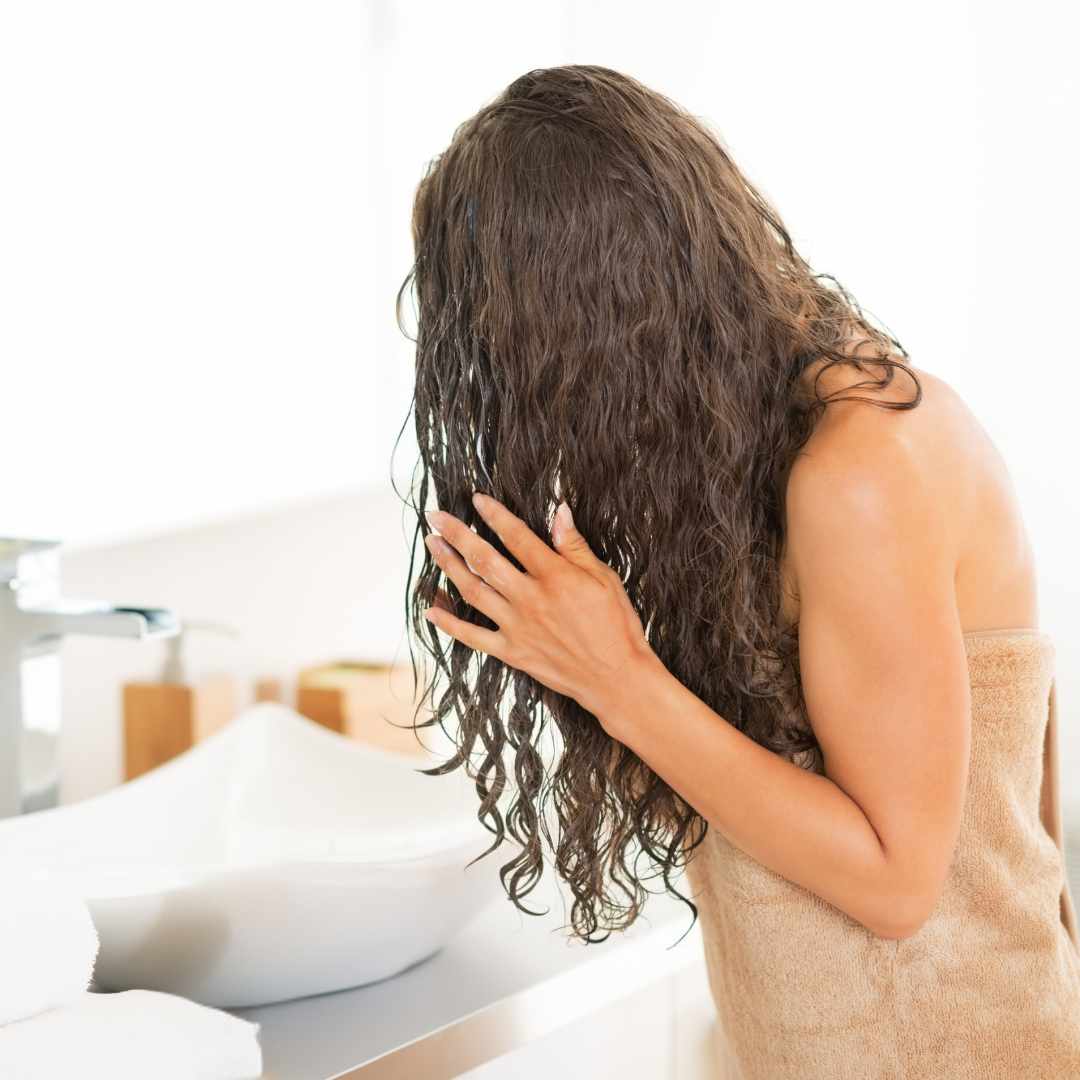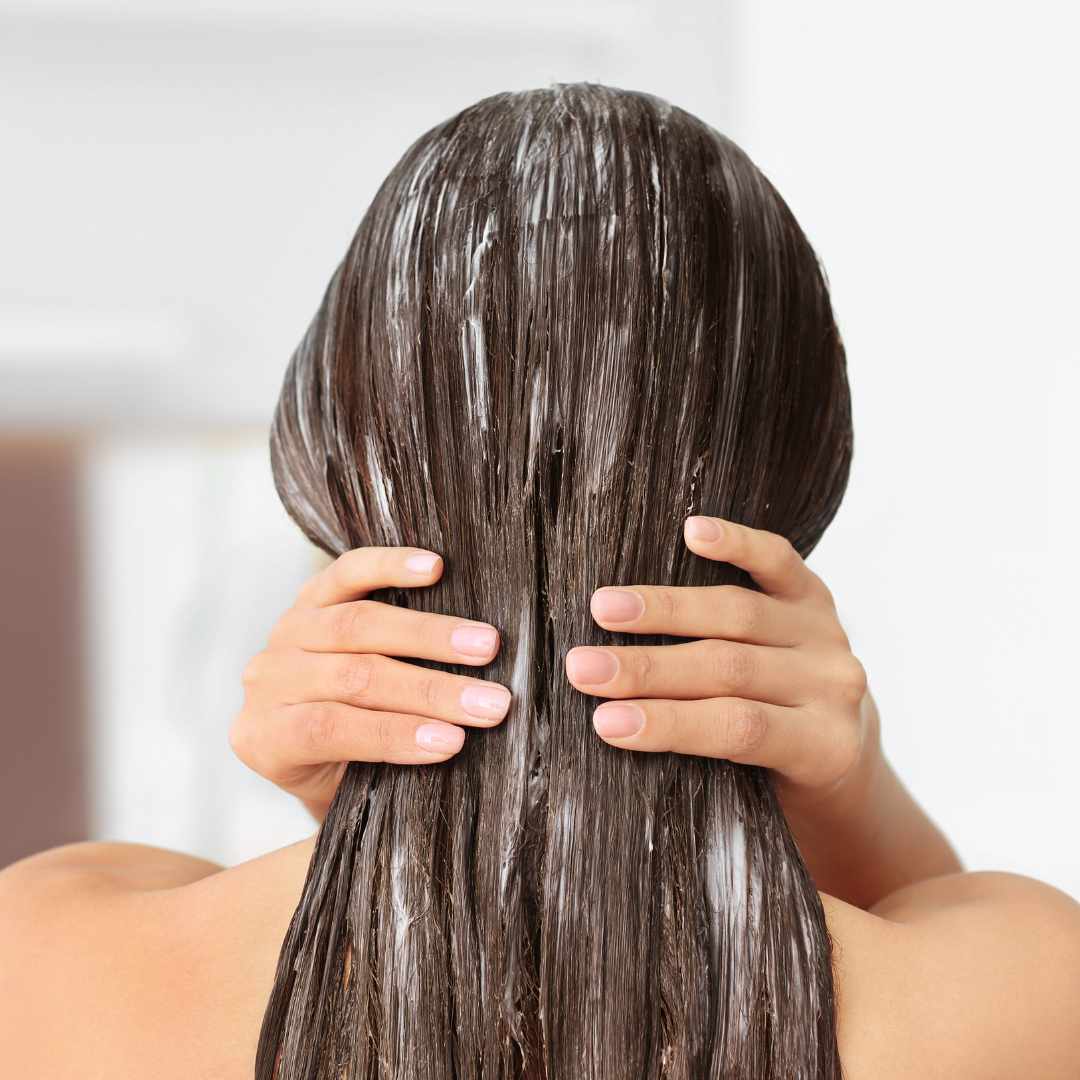
Cure for oily hair
Cure for oily hair - effective solutions for a healthy scalp
Greasy hair can be a frustrating challenge, especially if it feels heavy and lifeless shortly after washing. Many people find that their hair gets greasy quickly, even after thorough care, but luckily there are effective methods to balance the scalp's sebum production and achieve healthier and fresher hair. If you are looking for a cure for oily hair, there are several options – from the right hair care products to natural solutions and lifestyle changes.
In this guide, you will get an in-depth insight into the causes of oily hair, the best products and natural cures, as well as concrete lifestyle changes that can help you keep your scalp clean and your hair light and airy.

Why does hair get greasy quickly?
Greasy hair is caused by an overproduction of sebum from the scalp. Sebum is a natural oil that protects the hair and keeps it healthy, but when production becomes too high, it results in greasy roots. This can be due to several factors:
-
Frequent hair washing – When you wash your hair too often, the sebaceous glands are stimulated to produce more oil to compensate for the stripped natural moisture.
-
Wrong hair products – Sulfate-based shampoos or heavy oils can overload the scalp and create an imbalance.
-
Hormonal changes - Puberty, pregnancy and stress can affect sebum production in the scalp.
-
The diet – A high-fat diet with many saturated fatty acids can increase oil production.
-
Too much hair styling - Excessive use of hair products can clog the scalp and make the hair greasy more quickly.
Understanding these factors is the first step towards finding the right treatment for oily hair.
The best remedies for oily hair
Once you've identified the cause of your oily hair, you can take the necessary steps to balance your scalp and reduce sebum production. There are many methods of dealing with oily hair, but the most important thing is to find a treatment for oily hair that suits your hair type and lifestyle. Some prefer a gentle approach with natural ingredients, while others benefit from specific products designed to combat oily hair. Whatever you choose, it's crucial to be consistent with your hair care to achieve the best results.
Use a gentle shampoo
The shampoo you choose has a big impact on how quickly your hair gets greasy. A mild sulfate-free shampoo can help cleanse the scalp without overstimulating sebum production. Sulfates are powerful cleansers often found in shampoos, but they can be too harsh on the scalp and result in an overproduction of oil.
By choosing a shampoo with natural ingredients that soothe the scalp and remove excess oil gently, you can achieve a healthier balance and an effective cure for oily hair. Ingredients such as tea tree oil, aloe vera and apple cider vinegar are known for their cleansing and balancing properties.
Recommended product: SheaMoisture Apple Cider Vinegar Anti-Dandruff Shampoo – This shampoo contains apple cider vinegar that balances the scalp, fights dandruff and reduces oily hair without drying it out. Perfect for those who want a mild but effective solution against greasy roots.

Reduce the frequency of hair washing
Washing your hair daily can make the problem worse. When you often remove the natural oils from the scalp, it tries to compensate by producing even more oil, creating a vicious cycle.
To break this cycle, try cutting back and washing your hair every two or three days. At first, your hair may feel greasier than usual, but after a few weeks the scalp will adjust to the new routine and begin to regulate oil production better. This is one of the most effective methods if you are looking for a cure for oily hair.
Tips for the transition phase:
-
Use a hairbrush with natural bristles – This helps to distribute the oils from the scalp to the lengths of the hair, so that the grease does not collect at the roots.
-
Put the hair up in a loose hairstyle – On days when the hair looks more greasy, you can choose a ponytail, braid or bun to hide it.
-
Use a light dry shampoo – Dry shampoo can absorb excess oil and give hair a fresher look without you having to wash it.
By gradually reducing the frequency of washing your hair, you will find that your hair looks healthier and less greasy over time.
Use a conditioner that does not weigh the hair down
Many people mistakenly believe that they should avoid conditioner if they have oily hair, but this is not the case. A light conditioner is important to keep the hair well-groomed and prevent the lengths from drying out, especially if you use a cleansing shampoo.
However, it is crucial to choose a conditioner that is formulated for fine or oily hair, as heavy, oily conditioners can make the problem worse. Always apply conditioner to the lengths and ends - avoid the scalp as it can make the hair look heavy and greasy faster.
Recommended category: See the range of conditioners here – Find a conditioner that is light and moisturizing without leaving a greasy feel.

Natural remedies for oily hair
If you prefer natural solutions, there are several home remedies that can help reduce scalp oil production.
Apple cider vinegar – a natural scalp cleanser
Apple cider vinegar is known for its antibacterial properties and ability to balance the pH of the scalp. It can be an effective cure for oily hair.
How to make an apple cider vinegar rinse:
-
Mix 1 part apple cider vinegar with 3 parts water.
-
Pour the mixture over the hair after washing.
-
Leave it on for 2-3 minutes and then rinse with cold water.
Clay hair mask – absorbs grease
Clays, such as bentonite or kaolin, can absorb excess oil from the scalp and leave hair feeling fresher.
How to make a clay hair mask:
-
Mix 2 tbsp. bentonite clay with a little water or apple cider vinegar.
-
Apply the mixture to the scalp and leave it on for 10-15 minutes.
-
Rinse thoroughly with lukewarm water.
Lifestyle changes that can help with oily hair
In addition to choosing the right products and using natural remedies, it is important to take your lifestyle into account.
Avoid touching the hair
If you frequently touch your hair, you can transfer grease and dirt from your hands to your scalp, making your hair greasy more quickly.
Eat a balanced diet
Diet plays a big role in how your scalp produces oil. A healthy and varied diet can help regulate sebum production.
Good foods for a healthy scalp:
-
Green leafy vegetables – Rich in vitamins and minerals.
-
Fatty fish (salmon, mackerel) – Contains omega-3 fatty acids that can help balance the scalp.
-
Nuts and seeds – Provides essential nutrients such as zinc and biotin.
Use a mild shampoo with natural ingredients
Some shampoos can be too harsh and remove too much of the hair's natural oils, causing sebum production to increase.
Recommended product: ORS Olive Oil Creamy Aloe Shampoo – A nourishing shampoo with aloe vera and olive oil that cleanses gently without drying out the scalp.
Change your pillowcase often
Oil and dirt from your hair can transfer to your pillow, exacerbating the problem. Change your pillowcase at least once a week to ensure a clean scalp.

Find the right cure for oily hair
Managing oily hair is all about balancing the scalp's oil production and finding the right hair care routine. Each person's hair type and scalp reacts differently to products and treatments, so it may take some experimentation to find the most effective treatment for oily hair. By choosing mild shampoos, washing your hair less frequently, using natural remedies and adjusting your diet, you can achieve healthier and fresher hair.
Also remember that patience is key – it may take a few weeks for your scalp to adjust to the changes, but in the long run you will find that your hair looks healthier and more balanced. If you struggle with very oily hair, it may be a good idea to combine several of the methods mentioned to achieve the best results.
A cure for oily hair is not only about the products you use, but also about your daily routine and lifestyle. Try some of the recommended products and methods from this guide and find the solution that works best for you.
